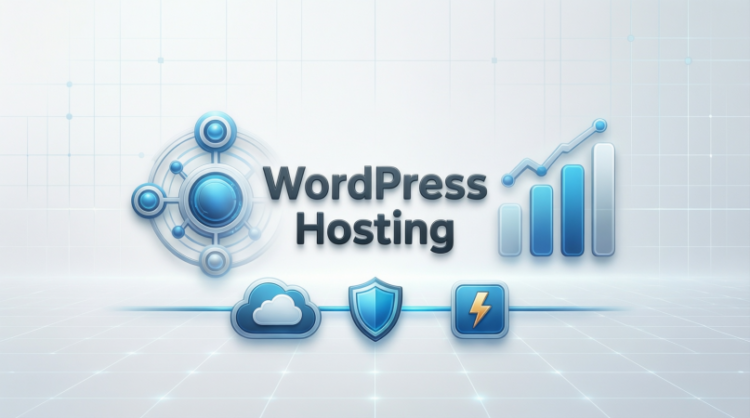
- Introduction to the Role of Technology in Business
- Advancements in Communication Technologies and Their Impact on Business
- Streamlining Operations and Boosting Productivity with Technology
- Leveraging Data and Analytics for Strategic Business Decisions
- – The Benefits of Big Data Analytics for Businesses
- – Utilizing Business Intelligence Tools for Data-Driven Insights
- – Applying Predictive Analytics for Better Decision Making
- – Understanding Cyber Threats and Risks for Businesses
- – Best Practices for Cybersecurity and Data Protection
- – The Role of Employee Training in Cybersecurity
- The Growing Importance of Mobile Technology in Business
- Future Trends in Technology and Their Implications for Business
- FAQ
The Role of Technology in Business. Technology has become an integral part of modern business, from communication to data analysis to streamlining operations. In today’s digital age, businesses that fail to embrace technology risk falling behind their competitors. By leveraging the latest advancements in technology, companies can improve productivity, reduce costs, better serve their customers, and make more informed strategic decisions. This article will explore the many ways in which technology is transforming the world of business and the key trends that will shape the future of the industry.
-
Introduction to the Role of Technology in Business
Technology has revolutionized the way businesses operate in the modern world. From communication to operations, businesses are increasingly relying on technology to streamline their processes and achieve greater efficiency. In this article, we will explore the various ways that technology is impacting businesses today.
-
Advancements in Communication Technologies and Their Impact on Business
– The Rise of Remote Work and Collaboration Tools
The COVID-19 pandemic has accelerated the trend towards remote work, and businesses are increasingly turning to collaboration tools to facilitate communication and collaboration between team members. Video conferencing, project management software, and instant messaging apps are just a few examples of the tools that are helping businesses to stay connected and productive.
– The Importance of Social Media Presence for Businesses
Social media has become a critical aspect of modern business strategy. With billions of people using social media platforms like Facebook, Twitter, and Instagram, businesses have a unique opportunity to connect with their customers and build brand loyalty. Social media also provides businesses with valuable data on customer behavior and preferences.
– Improving Customer Service with Technology
Technology has transformed the way that businesses interact with their customers. Chatbots, for example, can provide 24/7 customer support, while data analytics can help businesses to better understand their customers’ needs and preferences. In addition, tools like CRM software can help businesses to manage customer information and provide personalized service.
-
Streamlining Operations and Boosting Productivity with Technology
– Automation and Robotics in Manufacturing and Assembly
Automation and robotics are transforming the manufacturing and assembly industries. Machines can now perform tasks that were once the exclusive domain of human workers, resulting in greater efficiency and productivity. Robotics also improves safety in manufacturing and assembly environments.
– Inventory Management Systems and Supply Chain Optimization
Inventory management systems can help businesses to manage their inventory more efficiently, reducing the risk of stockouts and excess inventory. Supply chain optimization is also becoming increasingly important, with businesses using technology to better coordinate their suppliers and improve logistics.
– Cloud Computing and SaaS Solutions for Business Operations
Cloud computing and SaaS (Software as a Service) solutions are helping businesses to save money on IT infrastructure and improve their operations. Cloud computing allows businesses to store and access data from anywhere, while SaaS solutions like CRM software and accounting software are affordable alternatives to on-premise solutions.
-
Leveraging Data and Analytics for Strategic Business Decisions
– The Benefits of Big Data Analytics for Businesses
Big data analytics provides businesses with valuable insights into customer behavior, market trends, and other key business metrics. By analyzing large amounts of data, businesses can make more informed decisions and gain a competitive advantage.
– Utilizing Business Intelligence Tools for Data-Driven Insights
Business intelligence tools help businesses to collect, analyze, and visualize data, providing valuable insights into business performance. These tools can help businesses to identify areas for improvement, optimize their operations, and make data-driven decisions.
– Applying Predictive Analytics for Better Decision Making
Predictive analytics uses data, machine learning, and statistical algorithms to make predictions about future events or trends. By applying predictive analytics to their data, businesses can identify new opportunities, mitigate risks, and make more accurate decisions.5. Addressing Cybersecurity Concerns in the Digital Age
Technology has revolutionized the way businesses operate, but with it comes a growing concern – cybersecurity. Businesses face increasing threats from cybercriminals who are constantly looking for vulnerabilities in digital systems.
– Understanding Cyber Threats and Risks for Businesses
Cyber threats can take many forms, such as phishing scams, malware, or ransomware attacks, each with the potential to cause significant damage to a business’s reputation, finances, and sensitive data. As businesses become more reliant on technology, cyber risks become increasingly complex, and it’s essential for organizations to understand these risks.
– Best Practices for Cybersecurity and Data Protection
To reduce the risk of cyber-attacks, businesses need to implement best practices for cybersecurity and data protection. These include using strong passwords, keeping software and systems up to date, and backing up data regularly. Cybersecurity solutions such as antivirus software, firewalls, and intrusion detection systems can also help minimize the risk of cyber threats.
– The Role of Employee Training in Cybersecurity
However, technology alone is not enough to protect businesses from cyber threats. Employees also play a crucial role in cybersecurity, and businesses need to invest in regular training and awareness programs to ensure that their employees can identify and respond to cyber threats effectively.
-
The Growing Importance of Mobile Technology in Business
In recent years, mobile technology has become increasingly important in business. With the rise of mobile commerce, mobile apps, and mobile payments, businesses need to adapt to this shift towards mobile devices.
– The Rise of Mobile Commerce and Mobile Payments
Mobile commerce or m-commerce is the buying and selling of products and services through mobile devices. With mobile payments, customers can make payments through their mobile devices, making it easier and faster for them to buy goods and services.
– Mobile Apps and Customer Engagement
Mobile apps are another important aspect of mobile technology in business. They provide businesses with a way to connect and engage with their customers, offering features such as personalized offers, loyalty programs, and customer support.
– Enhancing Productivity with Mobile Devices and Apps
Mobile devices and apps can also enhance productivity within a business. Staff can use mobile apps to access information and communicate with colleagues while on the move, increasing efficiency and productivity.
-
Future Trends in Technology and Their Implications for Business
Technology is constantly evolving, and new trends are emerging at a rapid pace. Businesses need to keep up with these changes to stay competitive and relevant in their industry.
– The Impact of Artificial Intelligence and Machine Learning
Artificial intelligence (AI) and machine learning are two of the most significant trends in technology. They have the potential to transform the way businesses operate, from customer service to supply chain management. For example, chatbots powered by AI can provide customers with 24/7 support, while machine learning can help businesses analyze and leverage data more effectively.
– The Rise of Blockchain and Its Potential for Businesses
Blockchain is another trend that has the potential to transform businesses. Best known for its use in cryptocurrencies, blockchain is a distributed ledger system that can be used for a wide range of applications such as supply chain management, digital identity verification, and secure data sharing.
– The Internet of Things and Its Impact on Business Operations
The Internet of Things (IoT) is another trend that businesses need to pay attention to. IoT involves a network of interconnected devices that can communicate and share data with each other without human intervention. This can bring significant benefits to businesses, such as improved efficiency and reduced costs.
-
Conclusion: The Ever-Evolving Role of Technology in Business
In conclusion, technology is continually evolving, and businesses need to be prepared to adapt and embrace these changes to stay competitive. While technology presents challenges such as cybersecurity risks, it also offers significant opportunities to improve productivity, customer engagement, and operations. Businesses that stay up to date with new trends and invest in the right technology will be best placed to succeed in the digital age.In conclusion, technology has profoundly transformed the business landscape and will continue to do so in the future. Businesses that adopt and integrate the latest technology are poised to succeed and stay ahead in their respective industries. As technology continues to evolve, it will create new opportunities and challenges for businesses, and those that are willing to adapt and innovate will be the ones that thrive in the years ahead.
FAQ
-
How can technology help businesses improve productivity?
Modern technologies such as automation, artificial intelligence, and cloud computing can help businesses streamline their processes, reduce errors, and increase efficiency. By eliminating repetitive and time-consuming tasks, employees can focus on more important tasks, making them more productive.
-
What are the biggest cybersecurity risks for businesses?
Cybersecurity risks for businesses include data breaches, phishing attacks, ransomware, and other types of malware. These risks can result in significant financial losses, reputational damage, and legal liability.
-
What are the benefits of using data analytics for businesses?
Data analytics can help businesses gain insights into consumer behavior, market trends, and operational efficiencies. By analyzing large data sets, businesses can make more informed decisions and identify areas for improvement.
-
How can businesses stay up-to-date on the latest technology trends?
Businesses can stay up-to-date on technology trends by attending industry conferences, subscribing to industry publications, and staying engaged with technology communities online. It is also important to work with technology partners who can help identify new opportunities and provide guidance on emerging technologies.
Read More :





